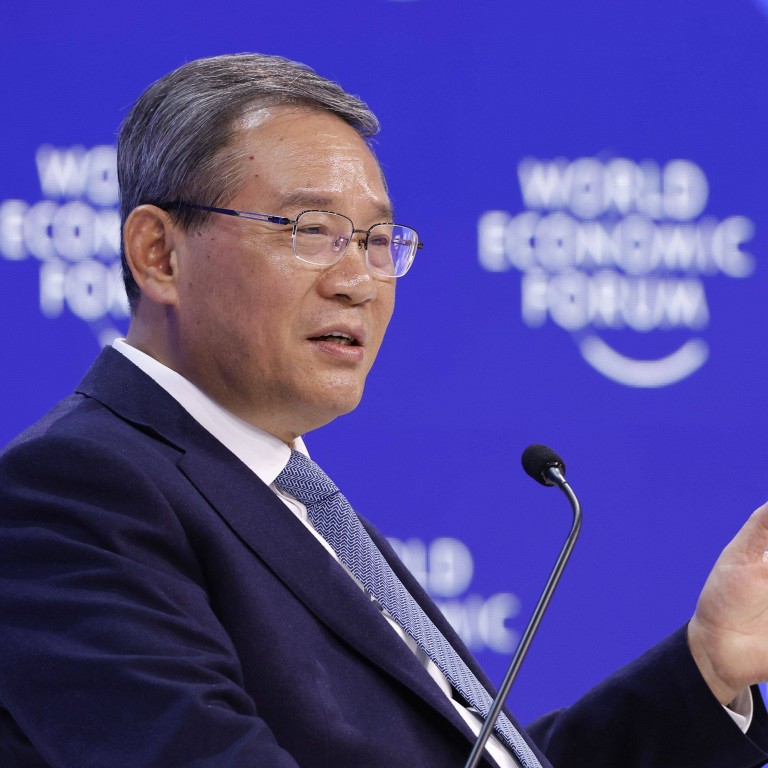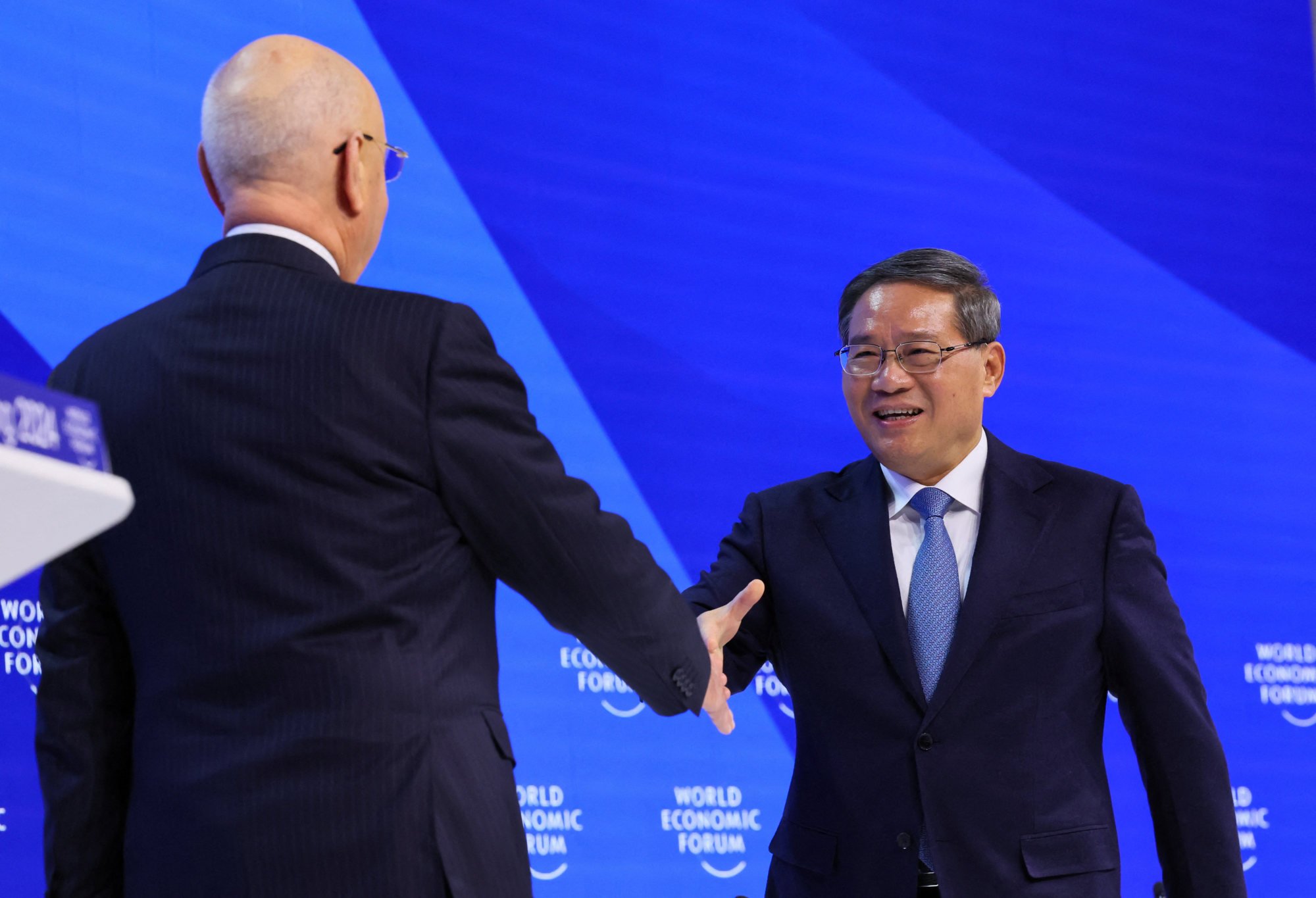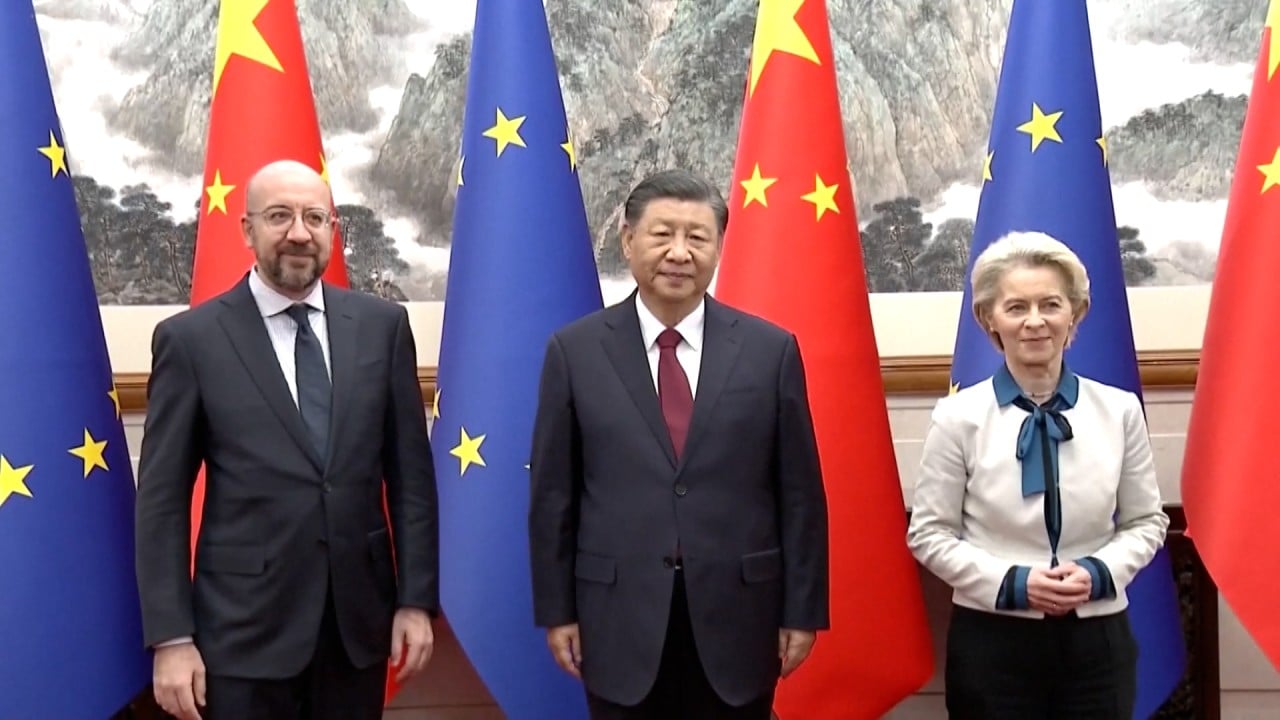
China’s economy hit target with 5.2% growth in 2023, Premier Li Qiang tells Davos forum
- ‘China’s economy rebounded and moved upwards’ last year to outperform target of around 5 per cent, Li tells World Economic Forum
- The premier, the most senior Chinese official to address Davos since President Xi Jinping in 2017, makes a similar pitch on multilateralism
“Last year, China’s economy rebounded and moved upwards, with estimated growth of around 5.2 per cent, which is higher than the target of around 5 per cent that we set at the beginning of last year,” Li said.
In a keynote speech to the gathering of world leaders, companies and top economic experts, Li talked up the health of the Chinese economy and gave a defence of globalisation.
Speaking in the resort town set in the Swiss Alps, Li compared China’s economy to an “undulating mountain range with magnificent peaks”.
“My European friends taught me that to fully appreciate the majestic beauty of the Alps, one has to zoom out and look from afar.
“As I see it, it is the same way for the Chinese economy, one has to broaden the vision and take a panoramic view to see the whole picture in an objective and comprehensive manner.”

In its post-Covid recovery, China “did not resort to massive stimulus, we did not seek short-term growth or accumulate long-term risks”, Li said, but focused instead on “strengthening internal drivers”.
“Just as a healthy person often has a strong immune system, the Chinese economy can handle ups and downs in its performance. The overall trend of long term growth will not change,” he added.
Seven years on, Li made a similar pitch, which also came a day after Trump’s victory in the Republican primary in Iowa and with the looming spectre of a fresh US pullback.
China does not “arbitrarily renege on agreements or withdraw from organisations, nor do we ask other countries to pick sides”, he said, calling for a more inclusive form of multilateralism.
“If the rules are set by certain or a few countries, then we have to put quotation marks on the multilateralism, because it will still be unilateral in nature.”
EU moves toward outbound investment screening, amid China concern
The former Communist Party chief of financial hub Shanghai also tried to allay concerns amid a de-risking movement in Europe and other parts of the West that are calling on companies to rethink their investments in China.
Directly addressing “business leaders” and “old friends” in the room, Li pointed to a return on foreign direct investment of “around 9 per cent” over the past five years in China, saying the Chinese market “is not a risk, but an opportunity”.
“China remains firmly committed to opening up, we will continue to create favourable conditions for the world to share in China’s opportunity,” Li said.
Next week, the European Union will flesh out its own economic security proposals with new details on plans to screen European companies’ investments in some sectors of the Chinese economy.
“We will hear the views of foreign businesses regularly and for reasonable concerns we will take active steps to address them,” he said, adding that Beijing was working to address demands to remove barriers to cross-border data flows, participation in government procurement, and foreign investment in manufacturing.
In a veiled swipe at the US, whose future in international groupings like the World Trade Organization would be under threat under a Republican presidency, Li said commitment to multilateralism was “a litmus test for whether they have fulfilled their due international obligations”.
He also took indirect aim at EU climate policies, such as its carbon border tax, which Beijing has long claimed is discriminatory and will penalise developing countries.
“Talks about the need for stronger cooperation on climate governance are often accompanied by actions of erecting barriers to green trade,” Li said.
He was due to meet European Commission President Ursula von der Leyen on Tuesday, her spokesman confirmed.
There was speculation ahead of the forum that he would also meet Ukrainian President Volodymyr Zelensky and US Secretary of State Antony Blinken. However, those meetings have not been officially confirmed, with Li planning to fly to Dublin for meetings later on Tuesday with Leo Varadkar, the premier of Ireland.
China is needed for peace process after Davos meeting, Ukraine says
His speech, coming on the heels of a presidential election in Taiwan on the weekend, was being closely watched for signs of reprisals from across the strait. Beijing reacted angrily to the result, which saw Democratic Progressive Party candidate William Lai Ching-te emerge as the president-elect.
But there was no mention of Taiwan, and only veiled allusions to other major geopolitical flashpoints. Instead, Li presented China as a steady leader in an increasingly chaotic world.
“In the face of global crises, fragmented and separate responses will only leave the world economy more fragile,” he said, slamming the “capriciousness” of countries that he said had worked to “undermine mutual trust”.


